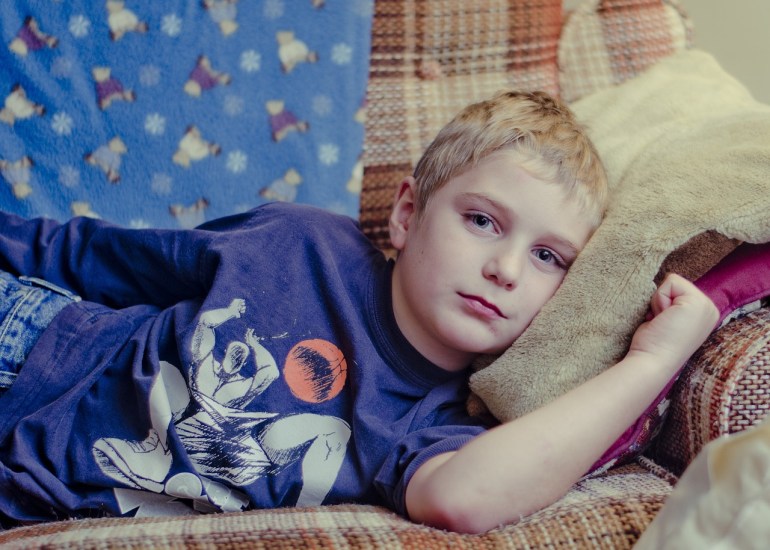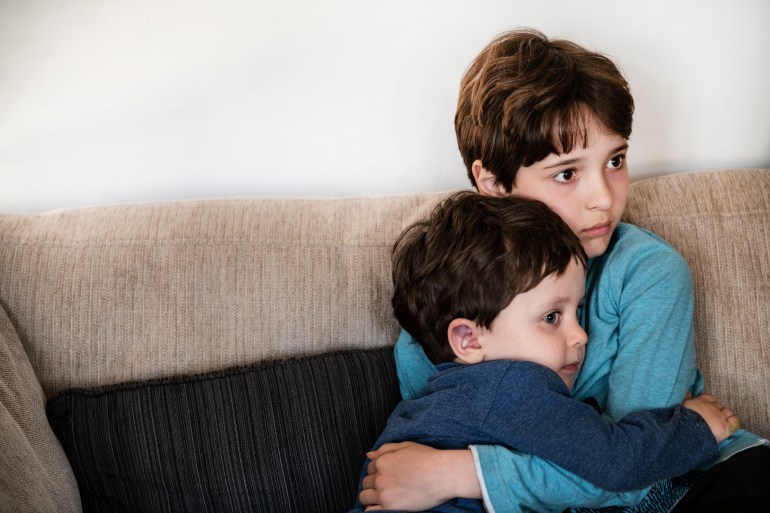'Glass child' syndrome… When children pay the price for their siblings' illnesses Mirror

The burden of raising a child with a physical or mental disability does not just fall on the parents, every member of the family is affected, especially when there is a lack of services and a lack of comprehensive systems to support the needs of special populations. “Glass children” or “transparent or invisible” The term “child” refers to a child for whom the parents' interest is focused on meeting his needs, and in return they are often unable to give the other siblings an equal amount of attention, simply because they are apparently developing normally .
What is “transparent child” syndrome?
The term has been used since the 2010 international TEDx conference, when certified business coach Alicia Maples spoke about her personal experience as a sibling with autism and related it to herself and all people with special needs. Described as “glass children” by siblings. “
Maples didn't use the word “glass” to describe its fragility, but rather the transparent, visible quality of glass so that you can see through it as clearly as if it wasn't there. By the same logic, these people have a sense that they don't exist.
no one cares or listens
Director Stephen Shubsky handled the syndrome deftly in his 2017 film “Wonder,” based on a true story about teenage sister “Via.” Via), as she adjusts to the birth of her younger brother, “Auggie.” Born with a congenital facial deformity, she received so much attention that her mother put her entire life on hold. For his sake, “Fia” shows during the events of the film how much she understands life and avoids complaining or expressing her life to the point of not burdening her parents more than they can bear, and also because no one cares or listens to her, She is often ignored. In one scene, she is forced to say to her brother: “This world…” is not centered around you. “
psychological and behavioral disorders
Jamie Domler, a professional clinical therapist, quoted on the website Life Hacker, said that the experience of “glass children” is completely similar to that of their parents, in that they both suffer from mixed feelings of sadness and confusion. , loss and anxiety, always mixed with their innate love for their brothers. Domler believes that a healthy child trying to find a way to blame himself for family problems can exacerbate his feelings of isolation and reluctance to interact with peers who may not understand the realities of his family life that well. To compensate for this, he indulged in daydreaming and creating imaginary worlds in his mind, which became more apparent during adolescence.
This is confirmed by a British study published in the Journal of Community Psychology in 2022, which showed that siblings of children with illness or disabilities are more likely to suffer from emotional neglect and neglect feelings, so they always tend to They isolate themselves, hide out of sight, go unnoticed, and feel constant guilt for not doing so. They are unable to provide adequate support to their siblings and they also face many behavioral and psychological disorders such as anxiety and stress.

Consequences and Consequences
Having a sibling with a special condition can enhance the values of empathy and responsibility, as well as enhance coping mechanisms and handling of problems. However, there is a range of feelings and challenges that are often overlooked or misunderstood and impact the psychological, physical and cognitive health of the rest of the siblings in society.
A meta-analytic review of 52 studies found that these siblings are highly susceptible to mental health disorders and psychological challenges because they often suppress their emotions and feelings and are hesitant to seek help and attention from their parents, who Carrying a heavy burden. Concern for their sick brother.
Mental health experts explain a range of common characteristics among invisible children, including:
Pursuit of perfection and idealism: The “Invisible Child” attempts to compensate for the feeling of being neglected and neglected by becoming an ideal, superior child. This is associated with a constant fear of failure, rejection and making mistakes, which robs him of spontaneity, creativity and independence. thinking.
Feeling guilty: His feelings of resentment grow inside him because his emotional needs are not being met, and he then feels guilty because he is upset or because he does not understand the responsibilities his parents have.

Isolation and introversion: He has lost interest in hobbies, missed many activities, lacked social skills and formed strong friendships, always pretended to be nice, remained silent about his problems and needs, and was often afraid of taking risks, which could be a hindrance to his career. Personal growth and social progress.
Trying to please others: He prefers to avoid conflict in order to keep the peace in relationships and is characterized by altruistic behaviors that make him feel loved and accepted.
Independence and Responsibility: He “wrongly” learned that his problems were minor and that he didn't need help, and he began to be self-reliant early on, such as preparing his own food or completing homework without supervision, and taking on more of the household burden.
Stress and Anxiety: He finds it difficult to express feelings of anger and frustration, which can exacerbate feelings of hopelessness, isolation, depression and anxiety. This is illustrated by a systematic review published in the journal Pediatrics in 2022, which concluded that sibling problems in children with chronic health problems are more likely to be affected by depression.

How can parents support “glass babies”?
Parents should be aware of the challenges their children face and take care to provide necessary care and support, such as:
- Allow time and a safe space to express feelings:
By sharing with your child activities that he enjoys and that are appropriate for his age and interests. Emily Hall, director of the Sibling Support Program, told Parents.com: Just spending 20 minutes with these children watching a favorite TV show or series is enough, or going for a walk, listening to them and letting them feel… …how unique and solid they are.
- Encourage open communication and self-expression:
- Find out what's going on in their heads by journaling, drawing or playing together and try to find ways to resolve their inner conflicts.
- Motivate and encourage them to practice their hobbies and do your best to support them and praise their achievements to boost their self-esteem.
- Provide a supportive environment to voice their concerns with someone they trust, or join a support group where they can share feelings and experiences without feeling shame or fear of being judged.
- If necessary, consult a psychiatrist to avoid behavioral problems such as aggression, addiction, or suicidal thoughts.
Source link





